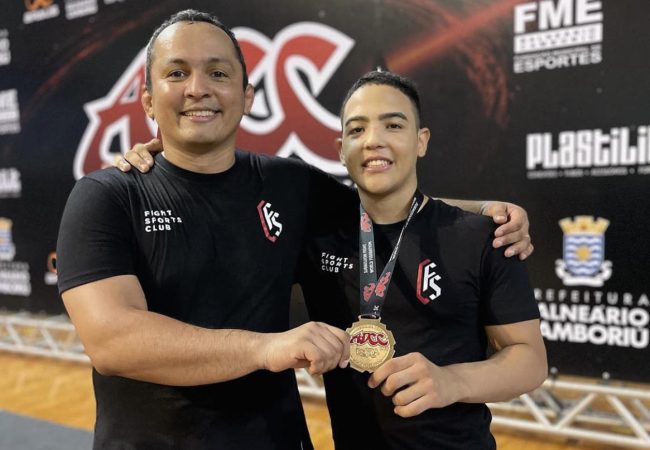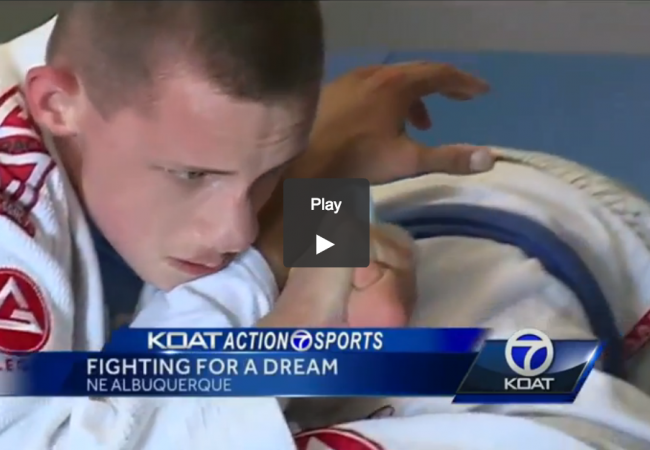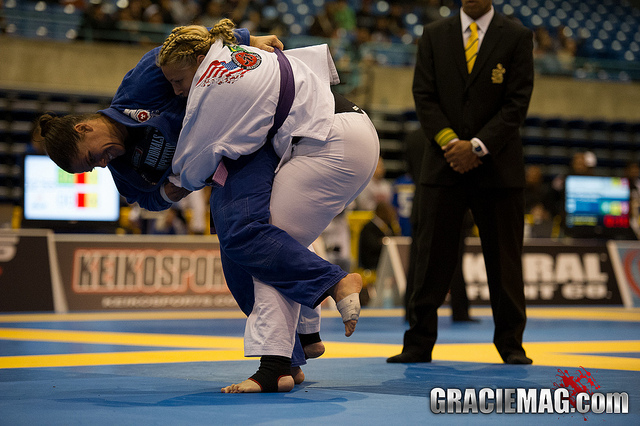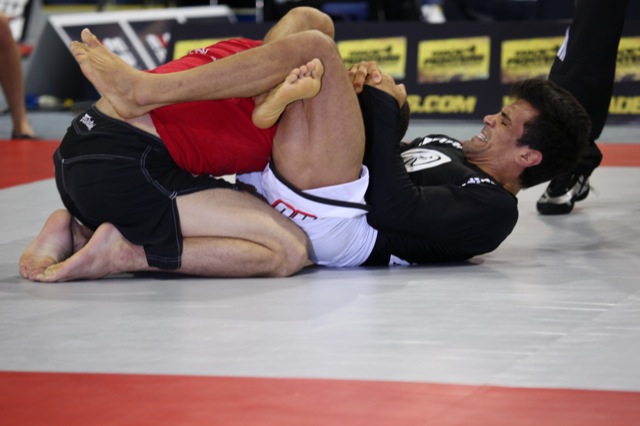
Rubens Cobrinha submits David Marinakis in his first match in Nottingham. He would also defeat Baret Yoshida and Jeff Glover. Photo: Daren Bartlett.
One of the big names of ADCC 2011, our GMA Rubens Charles Maciel returned to his academy in Hollywood, California, from England with a silver medal. It’s not the color of metal he wanted, but life goes on – and his classes, too.
After getting a special prize from his students, “Cobrinha” broke down ADCC 2011 and addressed what he learned at the quaint biennial tournament and from the final against the winner, Rafael Mendes.
How was your return to the academy?
Couldn’t have been better. I got a cake and a dinner from my students and family. My students and family are the ones who drive me to keep competing. I’ll tell you more, I feel in better physical shape than I did when I was 20.
So will we be seeing Rubens Cobrinha fighting for a fifth Jiu-Jitsu world title, in 2012?
As far as I’m concerned, yes, you can expect to see a Cobrinha who’s much better prepared than at the last competitions, especially since my students will be much more technical by then, so they can help me more in training.
What’s your break down of ADCC 2011, on September 24 and 25?
The ADCC was awesome! OF course there are some things that could have been better, like the refereeing, for instance. They still get muddled over point-scoring sometimes. I don’t want to cry over spilt milk, as my mom would say (laughs). But, for example, the IBJJF is overhauling the rules for next year. I have high hopes the changes will be for the better and the matches become more dynamic, with more submissions, more pleasing to watch, and not a festival of defensive stances that stall the game and make the matches tedious. I feel the refereeing department needs to be made professional to avoid partisanship. In my opinion that would be a huge contribution from the federation. And – who knows? – other tournaments might follow suit.

Rubens at the academy, in photo by Exequiel Videla / Personal Archive
What do you make of your ADCC campaign?
I feel I had an excellent campaign, at 95% of what I could do. And as Sheikh Tahnoon says, silver is a cornerstone of the world economy, of inestimable worth (laughs)! I can’t complain, if just because I fought really well, attacked for most of the time and was given a penalty point that no one has been able to explain to me so far [pulling guard in the final against Mendes]. But the main thing is that I rediscovered my desire to fight and compete – even if it’s just to show that Jiu-Jitsu has to stay in constant evolution, rather than merely getting stuck in defensive positions, as is the case with the 50/50 [guard].
Have you gotten over the negative point yet?
Like I said, I feel I fought really well and didn’t deserve the penalty point; that’s why it’s not about “getting over” the result. I’m in great physical and mental shape, and I was ready for another 40 minutes of overtime. But like I said, the ADCC was important in that it reawakened my appetite for competition, so… on to the next one.
What’s the main thing you learned from watching some of the matches? Did you derive some worthwhile lessons from watching Renzo vs. Zé Mário, for instance?
I was impressed by Bráulio’s supermatch [against Jacaré] because he demonstrated how much he has studied Jiu-Jitsu. It was nice to be able to see him compete again, because I learned a lot from the match. Now seeing Renzo and Zé Mário was great for our sport, as it’s always nice to bring in the people who did so much to develop our Jiu-Jitsu. And to me to be able to talk about Renzo has been an honor lately. Every time I go to Abu Dhabi with him I get a bunch of private classes (laughs). I’ve been learning a lot from him, not just when it comes to Jiu-Jitsu techniques but also in terms of life experience. What’s more, he’s in excellent physical shape, which I think comes down to the superfoods diet he’s been on.
Is there any lesson or final word you’d like to pass on?
I want to thank all the people who helped me prepare for the ADCC – my students, family, friends, Marcelo Garcia, Michel Maia, Pedro Lott, Renzo, Fabio Gurgel, my sponsor Keiko, and especially Sheikh Tahnoon for having provide the training camp of my dreams in the lead-up to the tournament.
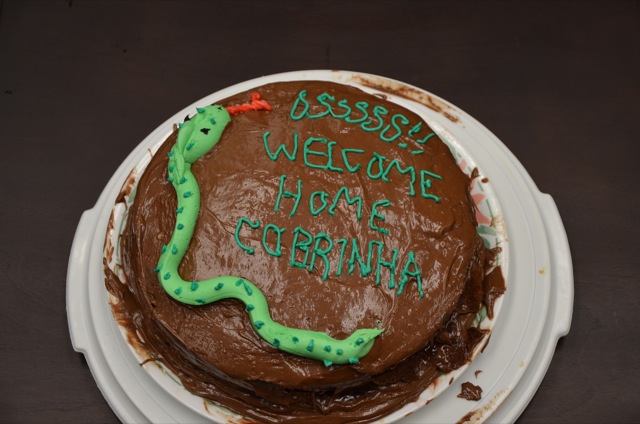
The cake, a present from students to the toughest ex-delicatessen in Jiu-Jitsu


